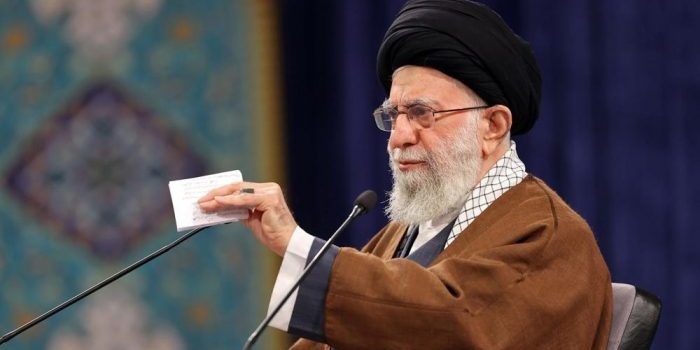(Ken Silva, Headline USA) A flurry of court filings hit the docket Monday in the Justice Department’s case against Ryan Routh, revealing bombshell new details about Routh’s activities in the months leading up to his alleged assassination attempt against Donald Trump last September—including that he tried buying a rocket launcher and a “stinger” missile from an associate in Ukraine weeks beforehand.
Along with several other motions, the DOJ filed a notice about the evidence it intends to introduce about Routh’s purported plans to kill Trump. According to that DOJ motion, Routh used aliases, he was in touch with a human smuggler in Mexico about an escape plan, and he attempted to buy a .50 caliber sniper rifle in late August.
An Escape Plan to Mexico?
The DOJ’s motion states that Routh was in touch with the Mexican smuggler, identified in court records only as “Ramiro,” since at least February 2024, when they discussed smuggling an Afghan family into the U.S.
“While this February chat involved smuggling others, it is necessary context for how that same chat evolved on September 13th and 14th, the two days before Routh set up his sniper hide at Trump International, when he contacted Ramiro for the first time since February 29,” the DOJ’s motion states.
“On those two days, Routh told Ramiro that he would be in Mexico City in the days immediately after September 15, with Ramiro responding that he would see Routh then and that he was located four hours outside of Mexico City and with Routh replying that he would call Ramiro once he knew for sure whether he’d meet him—something Routh planned through extensive web searches about travel to Mexico.”
Apparently, Routh’s contact with the Mexican smuggler was just one element of his escape plan. The DOJ also said in its motion that Routh used stolen license plates, burner phones, and aliases, including “John White” and “Brian Wilson.”
Missing Missiles
If Routh’s covert dealings with a Mexican human smuggler weren’t surprising enough, the DOJ also said in its motion that he tried buying a anti-aircraft weapons from a Ukrainian associate last August. As has been widely documented, Routh was an avid Ukraine supporter who travelled there after Russia’s invasion in early 2022. He volunteered to fight, but was rejected due to his age—leaving him to recruit others for the warfighting effort.
🚨NEW: The DOJ alleged in a late-Monday motion that would-be Trump assassin Ryan Routh ATTEMPTED TO BUY A ROCKET LAUNCHER FROM A UKRAINIAN ASSOCIATE weeks before his Sept. 15 attempt.
"I need equipment so that Trump cannot get elected," Routh allegedly told his Ukrainian… pic.twitter.com/WiRuG2kDRg
— Headline USA (@HeadlineUSA) April 8, 2025
“Routh told his associate to ‘send me an rpg [rocket propelled grenade] or stinger and I will see what we can do… [Trump] is not good for Ukraine,’ which led the two to discuss Routh’s purchase options, with Routh asking about the price and whether his associate could ‘ship it to me????’ before then explaining his intent: ‘I need equipment so that Trump cannot get elected,’” the DOJ’s motion states.
“The two then exchanged messages about price and logistics that included Routh writing, ‘going to the local store for such an item is impossible—however you are at war so those items lost and destroyed daily—one missing would not be noticed. Do you think Trump will be good for Ukraine?????’” the DOJ’s motion continues.
“The two continued to discuss the possibility of Routh securing a rocket or missile launcher, with Routh sending his associate an image of President Trump’s plane and writing ‘Trump’s plane, he gets on and off daily.’”
Even though some of the above actions aren’t directly related to Routh’s actions on Sept. 15, the DOJ argued that they show his overall commitment to act against Trump.
The DOJ’s stunning motion comes more than a year after the Defense Department’s inspector general reported in January 2024 that the Pentagon failed to properly track more than $1 billion in weaponry sent to Ukraine—including stinger missiles, which were popularized when the U.S. gave them to the Afghan mujahideen for its fight against Russia in the 1980s.
According to the IG report, the Pentagon failed to track roughly $1 billion out of the $1.7 billion in “enhanced end-use monitoring,” or EEUM, weapons sent to Ukraine. EEUM weapons are those that have a high risk for being diverted for other uses, and the Defense Department is supposed to take extra steps to make sure they reach their intended destination.
Weapons designated as EEUM include tomahawk missiles, stinger missiles, night-vision devices, javelins and a variety of other missiles and bombs.
The IG report didn’t say whether any weapons have actually been diverted for other purposes, stating that such issues are “beyond the scope of our evaluation.”
The DOJ motion also follows reports that Routh was communicating with British-trained Afghan commandos who were abandoned there after Kabul fell in 2021, and who are now living in Iran.
Ryan Routh was reportedly texting with a UK-trained Afghan commando living in Iran days before his alleged attempt on Donald Trump's life — giving that person advice on going to Ukraine. The Independent published screenshots Saturday. pic.twitter.com/bHrB3XKA9S
— Ken Silva (@JD_Cashless) November 25, 2024
Other Routh Motions
Also on Monday, Routh’s attorneys argued that the DOJ’s firearms charges against him should be dismissed on Second Amendment grounds, and that the DOJ should be barred from using a witness against Routh because the FBI manipulated that witness. The DOJ countered by asking Judge Aileen Cannon to prohibit Routh from mounting bizarre legal defenses, such as that he was morally justified in plotting to assassinate Trump.
Routh’s next court hearing is set for April 15, when the motions described above will presumably be discussed. He is set to stand trial in September.
Ken Silva is the editor of Headline USA. Follow him at x.com/jd_cashless.











